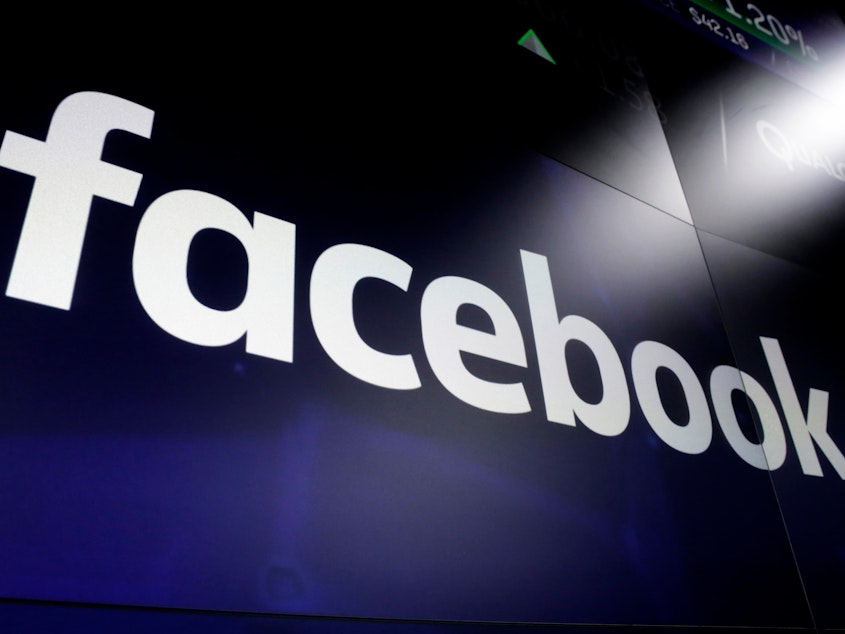Facebook Vows To Quash Anti-Vaccine Misinformation

Updated Friday at 8:35 a.m. ET
Facebook announced on Thursday it is taking steps to combat the spread of anti-vaccine information across the social media platform by reducing the distribution of misleading medical advice and relying on vetting from leading global health organizations that "have publicly identified verifiable vaccine hoaxes."
The company intends to provide users with authoritative information on the controversial topic, Monika Bickert, vice president of global policy management, said in a statement.
"If a group or Page admin posts this vaccine misinformation, we will exclude the entire group or Page from recommendations, reduce these groups and Pages' distribution in News Feed and Search, and reject ads with this misinformation," Bickert explained.
Additionally, ads that contain false facts about vaccines will be rejected and removed. If ad accounts continue to spread misinformation, Facebook said it will disable the account. It will also bar vaccine misinformation from Instagram, which Facebook owns. (Facebook is among NPR's financial supporters.)
The decision follows a Tuesday Senate hearing on how to stop the outbreak of preventable diseases in which an 18-year-old testified that he was immunized against the wishes of his mother, who he said had developed anti-vaccine beliefs through her involvement with various Facebook groups.
"For certain individuals and organizations that spread this misinformation, they instill fear into the public for their own gain selfishly, and do so knowing that their information is incorrect," Ethan Lindenberger said.
Last month, in a letter to Mark Zuckerberg, Rep. Adam Schiff, D-Calif., also addressed Facebook's shortcomings in counteracting the dissemination of inaccurate facts. In it, he expressed concern that Facebook and Instagram, which the company also owns, are "surfacing and recommending messages" that discourage children's vaccination. He called it a direct threat to public health that reverses medical progress.
There is overwhelming consensus among scientific and medical communities that vaccines are effective and safe in preventing potentially deadly diseases, including measles, mumps, rubella and chickenpox. But despite ample available data some groups continue to lobby against mandatory vaccination, gaining significant traction on social media sites.
To mitigate the reach of false information on its platform, Facebook said it is partnering with prominent global health organizations, including the World Health Organization and the U.S. Centers for Disease Control and Prevention to create factually accurate content.
Facebook's new stance also comes as public health officials are struggling to contain a measles outbreak in Clark County, Wash., that has wreaked havoc on the community there. More than 70 cases have been confirmed since January — 66 "were found in people 18 and younger and the vast majority were not immunized," The Seattle Times reported.
YouTube and Pinterest have also taken steps to tackle the spread of anti-vaccine information. [Copyright 2019 NPR]



